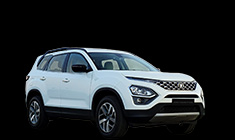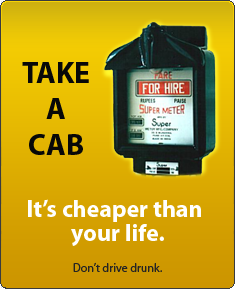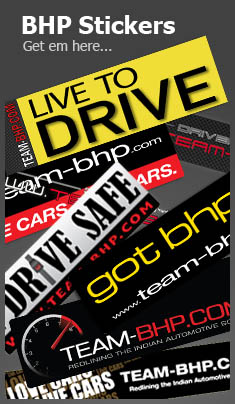News
Global NCAP Safety Tests & Ratings: How reliable are they?
Raised eyebrows when a car sent by a manufacturer scored 4 stars, while a car procured by GNCAP got 3 stars or less.
BHPian 07CR recently shared this with other enthusiasts.
I just came across this video from Motorbeam, wherein they debate whether the NCAP ratings have any double standards.
I myself had many of such questions, and am glad that people (journos) are asking the right questions publicly.
Listing a few excerpts from the Motorbeam Podcast:
- GNCAP has tested the same car twice in a span of under two years which hasn't received any significant facelift or update. These are a couple of old Maruti cars. Instead of testing these, why not test something new which will sell a lot, like Hyryder, Grand Vitara, new Brezza etc?
- Nexon pre-facelift was tested and scored 5-star, no update on the updated Nexon rating yet Tata advertises it as a 5-star rated product.
- On The day Nexon, Tiago and Tigor were launched, the safety ratings of each car were announced by GNCAP. How could they time this?
- Kia Seltos base model was tested and received 3 stars. The Scorpio-N model which was tested wasn't a base model and scored 5 stars. Why not maintain uniformity while testing?
- GNCAP claims it's a non-profit organization. It tests cars in two ways:
- Manufacturer sends the car for testing and costs are borne by the manufacturer.
- When GNCAP tests a car, they test it randomly. How do they manage this being a non-profit organization? Are these tests sponsored by a rival manufacturer? If yes, is it ethical and reliable?
- All popular cars like Compass, Harrier, Safari, Hector and Hector Plus which have the 2.0-litre multijet diesel engine are not tested. There's a manufacturing flaw in this diesel engine wherein the oil filter assembly enters the cabin when a crash happens and will impact safety. GNCAP has ignored all these cars for tests till now!
- General observation - Most times a manufacturer themselves has sent a car for testing, and the car has got 4 or more stars. Most times the GNCAP themselves have tested the cars, and these have received 3 or fewer stars! Raised eyebrows!
Do share your thoughts on this.
Here's what BHPian audioholic had to say on the matter:
I want to sum it up in short:
- GNCAP ratings are reliable. That's because they outsource the activities to the best facilities of ADAC, Applus Idiada and so and isn't done in-house. GNCAP is just an influencer/mediator/officially a charitable organization.
- What I don't trust is their vehicle criteria and their overall intentions. They are no saints in that regard contrary to what they claim. Being a charitable organization they need money to run and also pay for all those expensive crash tests. So the money has to come from somewhere. That's the reason you see selective targeting.
While there is no doubt that the Marutis and Hyundais with their pathetic score are indeed poorly crash engineered, I am sure that there are cars which have been cleverly ignored and kept away from the same tests. Hence, until these tests are made mandatory on every new model being launched and at least a mandate made that the manufacturers must display them in every ad, there won't be any uniformity.
Here's what BHPian theAutomaniac had to say on the matter:
The answer to this question honestly cannot be a clear yes or no!
That said, I think that Global NCAP is not amongst the most ethical organizations and has its own set of strong biases for and against manufacturers who worship them and don't respect them a bit, both respectively!
Some of the observations that make me believe so:
- Retesting of Brezza but not of Nexon: Now, with its 2020 facelift, the Brezza had only received a new grill and a new headlamp design and yet, Global NCAP decided to retest to check Maruti (and maybe to find another opportunity to bash them). On the other hand, the Nexon which had received a new and flatter front end was ignored. And even though Tata itself stopped using the 5-star rating in Nexon ads, Global NCAP has not bothered to check the safety of India's bestselling SUV.
- Global NCAP's obsession with ignoring cars (Bolero, Bolero Neo, Scorpio Classic, Nexon EV, Safari, Harrier, New Brezza, New Baleno, Grand Vitara and the allegedly 3-star rated 2nd gen Swift): Now, GNCAP constantly sings praises of Tata and Mahindra whenever the cars (sponsored) score high in their tests. However, the same people have ignored the 7-8k selling Bolero Duo and 4-5k selling Scorpio for years since these cars are not expected to score well. And the lesser said about the Tata twins, the better! On the other hand, Latin NCAP had awarded the 2nd gen Swift (Dual airbags) with a 3-star rating in their tests and as per the Latin NCAP video, this car had Maruti badges and was allegedly the same as the India-spec Swift. Why was the same rating not shown along with the non-airbag 0-star car? Now I agree that 2nd gen Swift never got dual airbags as standard in India, but since those were optional right from the LXI trim, I think displaying the 3-star score would've been apt to promote "Safer Cars For India". In the recent Maruti trio and ScorpioN crash test, GNCAP retested the old and non-updated Ignis, Swift and S-Presso but ignored the recently and heavily updated Brezza, Baleno and the all-new Grand Vitara, even though these three outsell at least one of the 3 retested hatchbacks. Coincidentally, these are the only Maruti cars which are eligible for a 4-5 star rating under the new Global NCAP norms. Coincidence much? Maybe or maybe not!
- The whole 2.0L MJD Fiasco: The 2.0L MJD equipped cars from Tata, MG and Jeep sell almost 8-9k cars every month and yet, the whole allegations regarding driver safety are being ignored. Isn't this engine an obstacle in attaining the targets for "Safer Cars for India"? Ignorance is concerning!
- Titles of Youtube videos of crash tests of some cars just feel like they carry a propaganda: Where disappointment was only expressed in crash tests of the cars of the manufacturer who openly opposes them but not in the videos of the ones who comply with them or stay silent.
- "Maruti Suzuki" used in the 3-star S-Presso crash test for Africa (There's no Maruti in Africa!)
- Swift dilutes NCAP's expectations in 2018 but the lower scoring i10 Nios did not, as per the titles.
- Unsurprisingly, even the 0-star rated Tata Zest had a simpler title not depicting any disappointment!
The rest
These discrepancies and the fact that Global NCAP crash tests are extremely limited make me think that while Global NCAP norms might not be tailored for specific manufacturers, they desperately need to cover a wider range of crash test types.
Now even if that happens and GNCAP magically starts testing for a wider range of crashes, some of our fellow countrymen just don't know how to read and interpret the test reports!
For instance, I've seen people and automotive vloggers confidently claiming that the 4-star Tiago is safer than a 3-star Carens and a 5-star Punch is safer than a XUV7OO since these smaller cars score higher than the bigger and heavier SUVs!My other complaint would be that the owners of these higher-rated cars, treat the higher score as a ticket for doing stupid lane changes, overspeeding etc, not understanding the risks associated! And when you try to confront these people, their go-to response is "It's a tank bro, it is safe than the tins and will save me". Spoiler alert, it won't!
Summarizing my post
Global NCAP has its fair share of discrepancies and limitations, but even if NCAP sorts out everything, 95% of us are way too ignorant to understand the reports correctly, thus nullifying the entire purpose behind these crash tests.
Also, everything aside, we cannot complain much against Global NCAP due to the lack of options. Let's hope the government-funded Bharat NCAP comes soon to make things better for everyone.
Here's what BHPian aravind.anand had to say on the matter:
If you vote No here in the poll, then you probably should not trust - the ARAI rating for fuel efficiency, that energy consumption rating on electrical appliances, that rating which helped you decide your hotel room & the Swiggy or Zomato star rating that you saw before trying a new restaurant!
All these are indicators to help give consumers a fair idea of the product or service or performance. Despite all the doubts that we have regarding the test procedures and ratings, today there is no other better way to understand the safety of the vehicle I am about to purchase.
Voted for Yes.
Here's what BHPian Hayek had to say on the matter:
Find this thread and the general carping about GNCAP ratings that many do quite strange.
GNCAP follows a clearly laid out protocol while testing cars. That is true for both cars they test independently (such as the Marutis) and cars they test when a manufacturer requests for the same (such as the Tatas). If their testing process was inadequate, you could be sure Maruti and Hyundai would be suing the pants off them. So the rating you get for any car that is tested is certain to be correct. In fact, you can also bet that the ratings are NOT a surprise to any manufacturer- these cars are designed and tested extensively, and the manufacturer surely knows what level of crash protection they are aiming for. For players like Suzuki and Hyundai who sell cars elsewhere and “value engineer” the same for India, they know what level of risk they are introducing and probably can also calculate how many people will die because of the changes they are introducing relative to selling their global product here.
Now on the choice of cars that are tested, the fact is that any manufacturer whose cars are likely to get good results will pay for the cars to be tested. Consequently, it is cars from players like Maruti and Hyundai which are likely to fail tests that will get picked up for suo-moto testing. That is not a surprise either. Should GNCAP go and pick up the Safari for testing? The fact is that I have not seen them pick any ₹20 l car for random testing but perhaps I am wrong. And when Tata is supporting them through tests for various other products, I am not surprised they don’t go out and spend their own money on making a Tata the first ₹20 lakh car they test.
Finally, asking for the Bolero or Ambassador to be tested is a joke - these are old platforms, and clearly won’t meet modern standards. If Maruti were still selling the 800, I don’t think anyone would expect it to meet crash standards - it is the failure of brand-new cars which is a cause for concern.
Check out BHPian comments for more insights and information.




_1.jpg)





_1.jpg)







